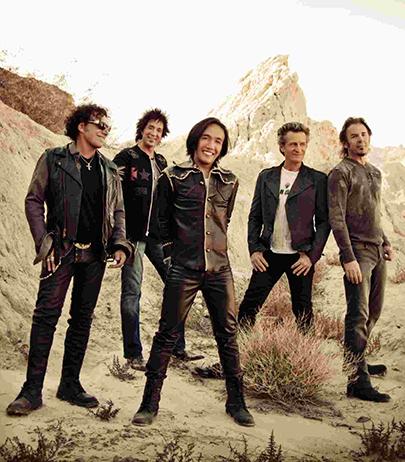**Serving Compassion, One Plate at a Time: The Journey of a Vegan Pioneer**
What does it mean to live a life fueled by compassion, purpose, and plant-based principles? For Paul Rodney Turner, founder and director of Food for Life Global, the answer is clear: a lifetime dedicated to serving billions—yes, billions—of vegan meals to those in need. As the “father of lifelong veganism” for his son, Turner’s story began with a simple yet transformative question: How do our choices impact the world, other living beings, and ourselves?
In this blog post, inspired by Paul’s revelations in his thought-provoking YouTube interview, we’ll dive deep into his 25-year journey as a proud vegan, the pivotal moments that shaped his philosophy, and his inspiring work as the leader of the world’s largest plant-based food relief organization. From his early awakening as a teenager to the powerful realizations that led him to embrace veganism in 1998, Paul’s story doesn’t just chronicle a personal transformation—it’s a testament to the power of leading by example.
We’ll explore the evolution of his mindset, from his first encounters with vegetarianism in his teens to the undeniable link between animal agriculture, environmental health, and human consciousness that became the bedrock of his mission. Whether you’re curious about how one man turned an ethical lifestyle into a global movement or are seeking inspiration to align your values with your actions, Paul’s journey offers lessons in integrity, resilience, and the untapped potential of food as an instrument for change.
Ready to embark on a journey of compassion and connection? Let’s dig into Paul Rodney Turner’s story and uncover what it truly means to serve the world—one plant-based meal at a time.
Journey of Compassion: How Childhood Beliefs Shaped a Life of Service

The seeds of compassion were planted early in Paul Rodney Turner’s life. At the tender age of 16, he stumbled upon a Hindu book titled Life Comes From Life, which profoundly altered his worldview. The book shed light on the spiritual essence of life, emphasizing that consciousness animates all living beings, and we are all energetically interconnected. This realization sparked an ethical shift in young Paul’s heart, ensuring he could no longer view animals as mere food. However, growing up in a culture unfamiliar with vegetarianism presented significant challenges. Without a proper support system or resources, his initial attempt to uphold a vegetarian lifestyle faltered.
A crucial turning point came at age 19 when a Seventh Day Adventist friend introduced him to a magazine on vegetarianism, which he devoured in a single evening. The magazine detailed the environmental, biological, and ethical implications of one’s diet. **This eye-opening moment became the bedrock of his lifelong commitment to vegetarianism**. These early influences, steeped in spirituality and ethics, provided the foundation for Paul’s later decision to adopt veganism in 1998. His unwavering belief that food is a tool for transformation directly shaped his vision for *Food for Life Global*—a pure plant-based food relief program serving billions of meals with a compassionate ethos.
- Inspired by the philosophy: “Life is more than physical existence.”
- Experienced a gradual transition from vegetarianism to veganism shaped by *conscious reflection*.
- Rooted his charity’s principles in alignment with this belief system.
From Vegetarian Beginnings to a Global Vegan Vision

Paul Rodney Turner’s journey from vegetarian beginnings to embracing a global vegan vision is testament to his unwavering commitment to compassion and sustainability. At 16, inspired by a Hare Krishna book titled Life Comes From Life, he realized that the essence of life is spiritual and interconnected. This revelation shifted his perspective, making him question the ethics of consuming animals. Although early attempts at vegetarianism were challenging, due to limited support and predictable meal options like mashed potatoes and fruit, his resolve deepened at 19 after reading a magazine on vegetarianism. The revelation that dietary choices affect our health, environment, and consciousness solidified his transition to vegetarianism—and ultimately to veganism in 1998.
In 1998, Paul’s exposure to animal rights and veganism conferences propelled him to champion the environmental and ethical urgency of adopting 100% plant-based principles. Recognizing the devastating impact of animal agriculture, he made the bold decision to align Food for Life Global’s operations entirely with vegan ideals. As a result, **Food for Life Global transformed into a pure plant-based food relief organization**, ensuring consistency with its values of harmony and respect for all beings. Today, the initiative leads by example, proving that compassion-driven culinary practices can serve billions while protecting our planet.
| Stage | Milestone |
|---|---|
| Age 16 | Inspired to go vegetarian by spiritual teachings. |
| Age 19 | Became vegetarian after reading a transformative magazine. |
| 1998 | Transitioned to veganism and led Food for Life Global’s shift to plant-based operations. |
Aligning Ethics and Action: The Philosophy Behind Food for Life Global’s Mission

At the heart of Food for Life Global’s mission lies a beautiful alignment between ethics and action. Paul Rodney Turner, the visionary founder, made a pivotal decision in 1998 to transition the organization to a **completely vegan model**. This shift was more than dietary; it was **a declaration of values**. Paul’s journey to veganism, inspired by attending animal rights and veganism conferences, was fueled by the realization of the **widespread impact of animal agriculture**—on the environment, human health, and global consciousness. He knew that in order for their humanitarian efforts to embody true compassion and sustainability, the meals they served had to reflect those same principles. Thus, Food for Life Global became a **purely plant-based beacon of hope.**
- Environmental consciousness: Acknowledging the harmful effects of animal agriculture.
- Health awareness: Supporting diets aligned with human biology and well-being.
- Spiritual connectivity: Recognizing the interconnectedness of all living beings.
| Value | Action |
|---|---|
| Compassion | Serve plant-based meals universally. |
| Sustainability | Reduce environmental impact through veganism. |
| Ethics | Ensure alignment between philosophy and practice. |
This commitment to veganism highlighted not only the food served but also the **philosophical foundation of the charity**, paving a path for ethical, mindful service to billions of people around the globe.
Rethinking Food Systems: The Environmental and Ethical Case for Veganism

Veganism stands at the crossroads of environmental sustainability and ethical responsibility. For Paul Rodney Turner, the realization dawned during his journey through conferences on veganism and animal rights. The undeniable **impact of animal agriculture**—on not just the planet, but also on humanity and the shared consciousness connecting all life—compelled him to rethink his dietary choices. At the core of this shift was the conviction that aligning one’s actions with values of compassion and sustainability could catalyze global change. In 1998, this understanding propelled Paul to make the pivotal shift from vegetarianism to **fully plant-based living**, a decision that reshaped his organization, Food for Life Global, into a pioneering vegan food relief project. Today, it proudly serves millions of plant-based meals each year, embodying its unwavering ethos.
Examining the impact of animal agriculture emphasizes both its ethical implications and devastating environmental footprint:
- Deforestation: Expansion for livestock grazing disrupts ecosystems worldwide.
- Water Use: Animal farming consumes staggering quantities of fresh water, intensifying scarcity.
- Greenhouse Gas Emissions: Livestock production significantly contributes to methane and nitrous oxide levels.
| Vegan Living Benefit | Environmental Impact |
|---|---|
| Decreased Water Footprint | Saves 1,500 gallons per day per person* |
| Lower Greenhouse Emissions | Reduces 50% more GHG than vegetarian diets* |
| Conservation of Biodiversity | Protects endangered habitats |
*Based on leading scientific estimates
Practical Steps for Transitioning to a Plant-Based Lifestyle

Embracing a plant-based lifestyle can be a fulfilling journey for both the body and mind. To ease into this transformative transition, start by exploring foods you already love that are naturally plant-based. Build meals around **fruits**, **vegetables**, **legumes**, and **whole grains**, focusing on their vibrant flavors and versatility. Gradually replace meat and dairy with vegan alternatives—choose almond milk for cereal, tofu stir-fries instead of chicken, or coconut yogurt for desserts. Experimenting with spices and international cuisines like Indian, Thai, or Mediterranean can unlock new culinary possibilities without relying on animal products!
- **Educate Yourself:** Dig into books, documentaries, and resources on veganism’s environmental and ethical impact.
- **Stock Your Kitchen:** Organize your pantry with staples like lentils, chickpeas, quinoa, nuts, and seeds.
- **Set Realistic Goals:** Progress at your own pace; perhaps try plant-based meals a few times a week to start.
- **Find Community:** Join online vegan forums or local groups for support, recipe ideas, and shared experiences.
| Plant-Based Meal Idea | Description |
|---|---|
| Chickpea Buddha Bowl | Loaded with roasted veggies, quinoa, tahini dressing |
| Vegan Pad Thai | Rice noodles tossed with tofu, peanut sauce, fresh lime |
| Sweet Potato Curry | Comforting coconut-based curry with aromatic spices |
Closing Remarks
As we wrap up this journey through the inspiring life and mission of Paul Rodney Turner – the “Father of Lifelong Veganism” and the driving force behind Food for Life Global – it’s clear that his story is one of transformation, compassion, and purpose. From his early days of grappling with the realities of vegetarianism as a teenager to his moment of clarity in 1998 that led him to fully embrace veganism, Paul’s path reminds us of the power of self-education and the courage to align our actions with our values.
His decision to transition Food for Life Global into a purely plant-based organization is rooted in a deep understanding of interconnectedness – the belief that life is more than just physical matter; it is consciousness, unity, and shared energy. This insight continues to ripple through the billions of meals Food for Life Global has served, offering not only nourishment but a message of hope, sustainability, and kindness.
Paul’s journey and the work of his organization challenges us to reflect on our own choices: How do they impact the world around us – from other living beings to the environment itself? His story shows us that change is possible when we open our minds to new perspectives and act with integrity.
Whether you’re here for inspiration, curious about veganism, or simply moved by the idea of serving humanity in a meaningful way, Paul’s account provides food for thought. In a world facing vast challenges, stories like his illuminate the path forward – one plant-based meal at a time.
So, as we part ways today, consider this: What small steps can you take in your own life to align your actions with the principles of compassion, sustainability, and unity? The answers might just change the world.















































